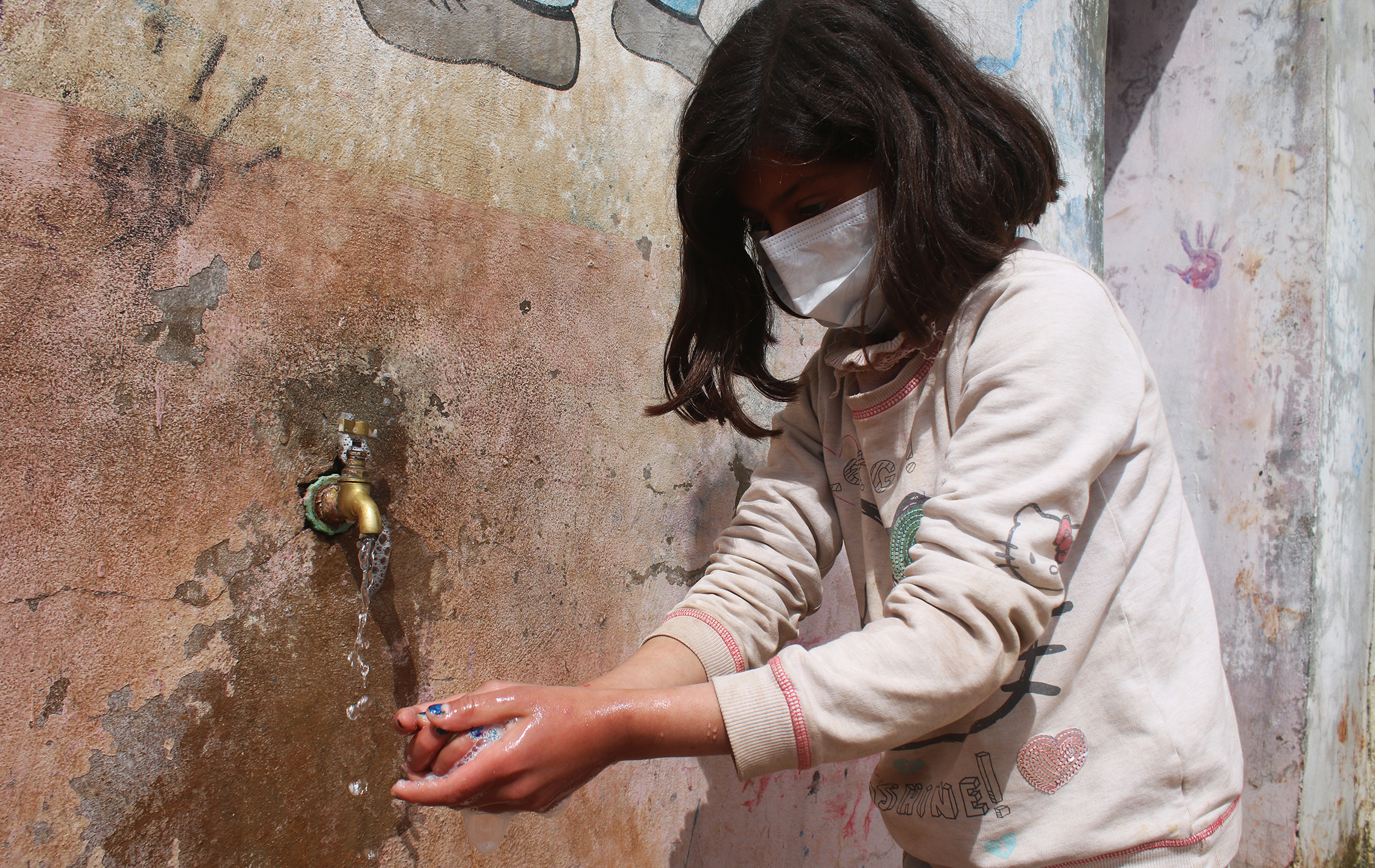70% of urban respondents reported losing more than half their income, compared to 65% of rural respondents.
Save the Children carried out a global study to understand how the COVID-19 pandemic has impacted children’s health, nutrition, learning, wellbeing, protection, family finances, and poverty - and to identify the needs of children and their families. The research was implemented in 46 countries with 31,683 parents and caregivers and 13,477 children aged between 11 and 17. A representative sample of Save the Children programme participants was obtained in 37 countries.
 Tala, 9, lives in a camp in northern Idlib in Syria where she attends a school supported by Save the Children’s partners. Because of the coronavirus pandemic, our partners have had to adapt their programming and now do virtual classes to support remote learning. Tala and Karma now watch these classes at home and continue their studies.
Tala, 9, lives in a camp in northern Idlib in Syria where she attends a school supported by Save the Children’s partners. Because of the coronavirus pandemic, our partners have had to adapt their programming and now do virtual classes to support remote learning. Tala and Karma now watch these classes at home and continue their studies.
‘The Hidden Impact of COVID-19 on Children in Urban Contexts’ summarizes the key findings of the impact of COVID-19 on children in urban contexts. They include:
44% of urban households reported being in a food security ‘crisis’, compared to 27% for rural areas
39% of urban respondents reported having difficulty paying for rent compared to 6% in rural areas.
About the report
Urban areas have experienced the brunt of the COVID-19 pandemic and children growing up in urban contexts have been disproportionately affected by the measures put in place to control infections. The characteristics of urban areas increase not only the exposure and vulnerability of their populations to the direct health risks of COVID-19, but also the negative impacts of infection control measures put in place by governments all over the world. This report presents data from Save the Children’s global survey on the impacts of the COVID-19 pandemic on children in urban areas. It explores how overcrowded living conditions, reliance on an informal cash economy and a lack of adequate housing and basic infrastructure have exacerbated the impacts of the pandemic on children growing up in low-resource urban contexts, especially informal settlements and slums.
Urban areas are ground zero of the COVID-19 pandemic, with 90 per cent of reported cases. Cities are bearing the brunt of the crisis – many with strained health systems, inadequate water and sanitation services, insufficient housing stock and many other challenges.